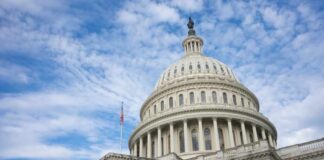
Around 900 American workers at the Weirton, West Virginia, tin production plant face unemployment as Cleveland-Cliffs Inc. plans to idle the facility in April. The decision announced on February 15 was driven by the United States International Trade Commission’s (ITC) refusal to impose tariffs on imported tin. That call sparked sharp criticism directed at the Biden administration’s approach to international trade and economic policy.
Cleveland-Cliffs, North America’s largest flat-rolled steel producer, and the United Steelworkers (USW) had appealed for tariffs on unfairly priced imports from Canada, China, Germany and South Korea. Despite the Department of Commerce identifying dumping and subsidization activities, the ITC, led by a majority of Democrat commissioners, rejected these protective measures.
Cleveland Cliffs To Close Weirton Tinplate Facility https://t.co/Kbt6lKa84A#Steel #SteelNews #SteelIndustry #SteelIndustryNews #Metal #Metals #Economy #Aluminum #Steelmaking #MetalNews #Pricing #Decarbonization pic.twitter.com/mGT6VJArNu
— Steel Industry News (@steel_news) February 20, 2024
The closure of the Weirton plant is not just a local issue but a national concern. The city, already bearing the scars of industrial decline, will face further economic strain as nearly 900 workers join the ranks of the unemployed. This move has been described by company executives and local representatives as a blow to the community and a risk to the nation’s food supply chain, underscoring the interconnectedness of domestic manufacturing and national security.
Critics argue that the ITC’s decision reflects a troubling trend in U.S. trade policy that prioritizes global interests over American workers and industries. Rep. Alex Mooney (R-WV) labeled the agency “globalist, Democrat-led,” accusing it of siding with foreign competitors.
For decades, policies like the North American Free Trade Agreement have been criticized for decimating local industries. The recent ITC ruling adds another chapter to this narrative, highlighting the need to reassess trade policies that ensure a level playing field for American companies.
West Virginia state lawmakers have expressed disappointment and concern for the region’s future. While immediate support may come from Workforce West Virginia, the long-term solutions remain uncertain. As indicated by local officials, the legislative response will need to address not only the immediate fallout but also the systemic issues that allowed this scenario to unfold.
The closure of the Weirton plant raises significant questions about the direction of U.S. trade and economic policy. As the Biden administration navigates these complex issues, the voices of American workers and industries demand greater consideration. The Weirton case is a stark reminder of the real-world impacts of policy decisions, underscoring the urgent need for a trade policy that puts American jobs and communities first.





























